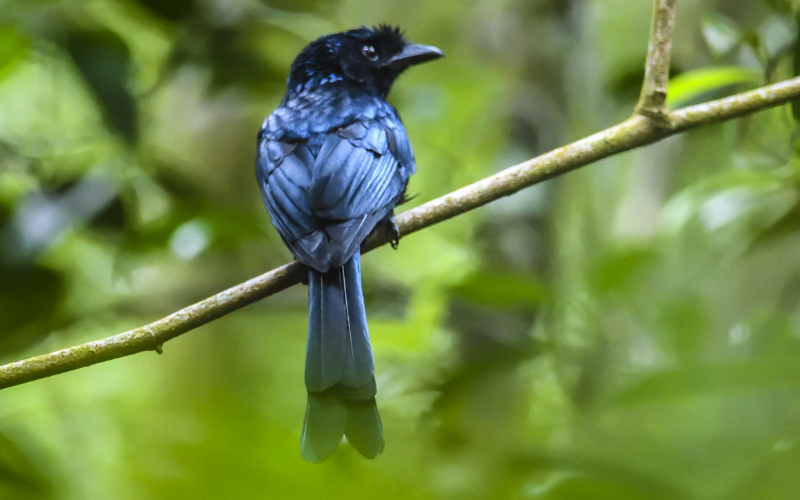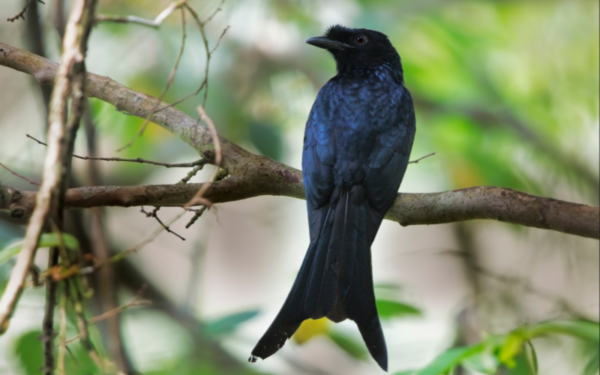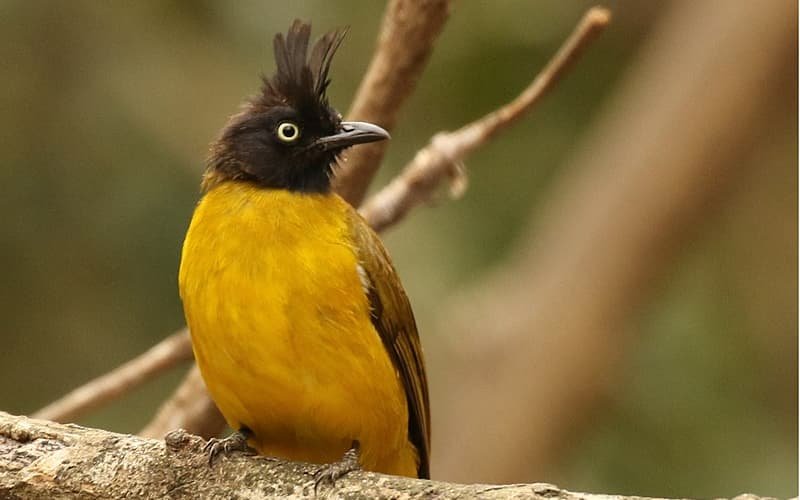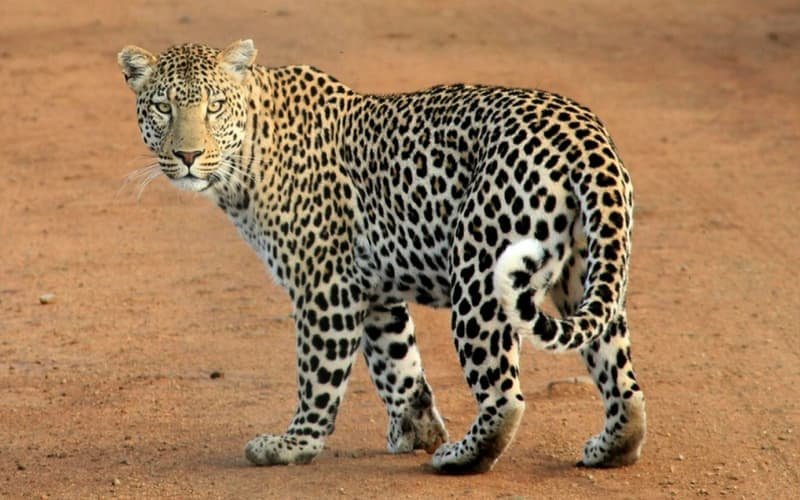Introduction
The Sri Lanka Drongo (Dicrurus lophorinus), also known as the Ceylon Crested Drongo, is a captivating bird species that belongs to the Dicruridae family. Found exclusively in the lush landscapes of Sri Lanka, this avian gem was once considered a subspecies of the larger racket-tailed drongo. It thrives in the island’s tropical and subtropical lowland and montane forests, making it a favorite among bird watchers and nature enthusiasts.
Striking Features and Appearance
This medium-sized bird measures about 30 cm in length and weighs up to 65 grams. Its glossy black plumage shimmers with metallic blue or greenish-blue hues under sunlight, while its deeply forked tail and arched, helmet-like crest add to its elegance. A bright white patch on its throat offers a striking contrast, complemented by its fiery red eyes. Male and female birds share similar features, making them equally mesmerizing.
Distribution and Habitat
Endemic to Sri Lanka, the Sri Lanka Drongo is a highly adaptable species found across various environments, from dense forests to urban gardens and agricultural lands. This remarkable adaptability enables the species to flourish, even in changing habitats..

Diet and Behavior
Primarily insectivorous, the Sri Lanka Drongo feeds on a diverse diet of flies, beetles, and caterpillars. Its acrobatic flight patterns and masterful aerial maneuvers make it an exceptional hunter. Adding to its charm is its impressive ability to mimic the calls of other birds, earning it a reputation as one of nature’s finest vocalists. The bird also engages in “anting,” a fascinating behavior where ants are used to rid feathers of parasites and maintain hygiene.
Conservation Concerns
Despite its versatility, the Sri Lanka Drongo faces threats from habitat loss due to deforestation, urbanization, and agricultural expansion. Conservation efforts, including habitat restoration, protected area management, and public awareness campaigns, are vital to preserving this species for future generations.
Best Places to Spot the Sri Lanka Drongo
For those eager to witness this avian marvel, Sri Lanka offers several prime locations:
- Bodhinagala Forest Reserve
- The Peak Wilderness Sanctuary
- Morapitiya Forest Reserve
- Sinharaja Rain Forest (UNESCO World Heritage Site)
- Kanneliya Forest Reserve
- Hiyare Forest Reserve
Conclusion
The Sri Lanka Drongo is not just a bird—it’s a symbol of Sri Lanka’s rich biodiversity. With its shimmering plumage, acrobatic prowess, and melodious calls, this charismatic species is a testament to the island’s natural beauty. However, its survival depends on our commitment to conservation. By protecting its habitats, we ensure that this magnificent bird continues to grace Sri Lanka’s skies for generations to come.
Best Tours in Sri Lanka
Discover the best tours in Sri Lanka, where every journey unveils a new wonder. Explore ancient ruins, lush tea plantations, golden beaches, and vibrant wildlife. Experience the magic of this tropical paradise like never before!
Best Hotels
Experience luxury and comfort at the best hotels in Sri Lanka. From serene beachfront resorts to charming hill-country retreats, enjoy world-class hospitality, stunning views, and unforgettable stays tailored to your every need.🛌
Flight Booking
Looking to take off on your next adventure? Book your flights with ease and confidence! Whether it’s a dream vacation, a quick getaway, or a business trip, our flight booking service offers unbeatable deals, flexible options, and seamless convenience. Compare airlines, find the best routes, and secure your tickets in just a few clicks. With 24/7 customer support and exclusive discounts, the skies have never been friendlier. Start your journey today and make every mile memorable! ✈️





3.5
3.5